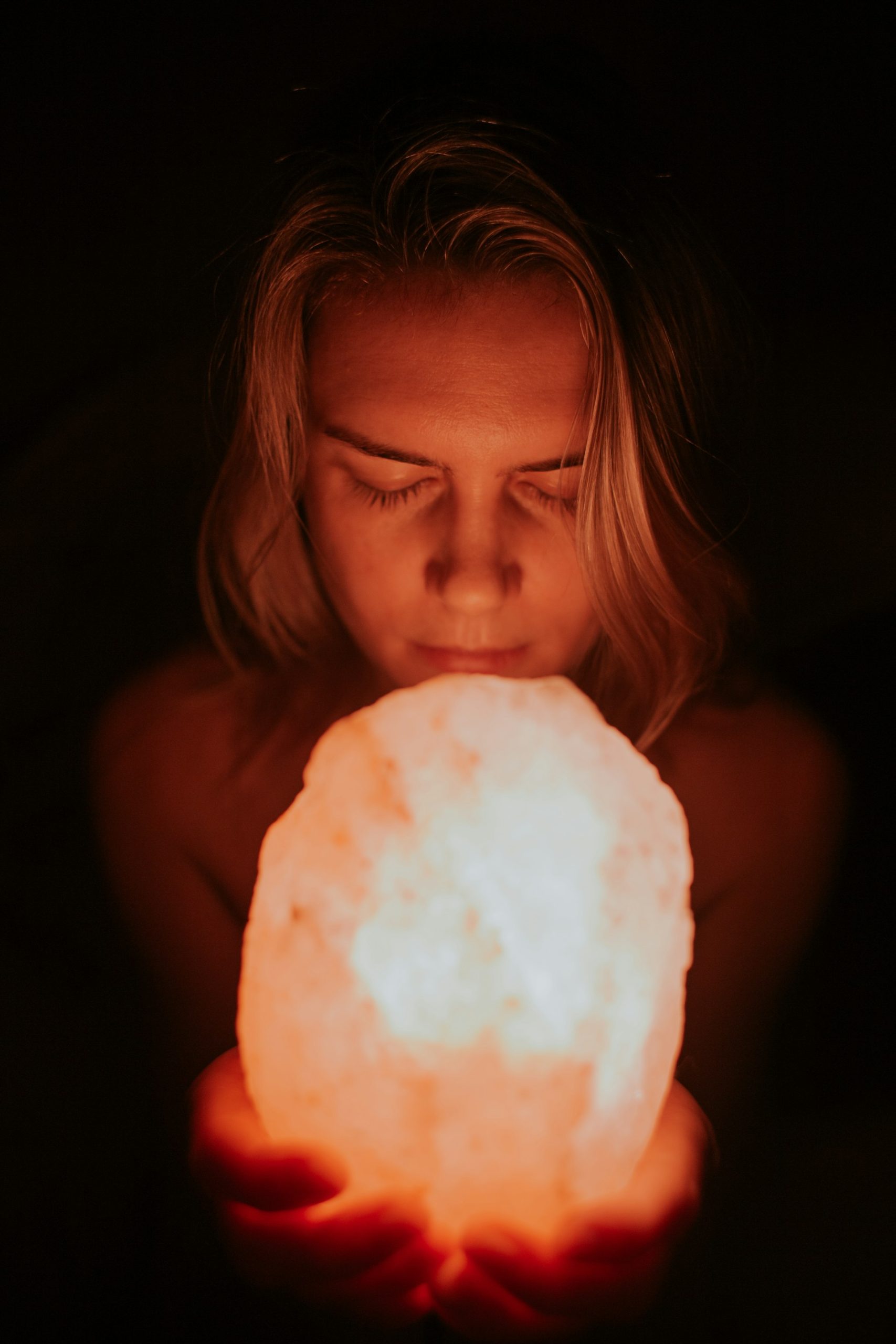
*Did you know you can write on Elephant? Here’s how—big changes: How to Write & Make Money or at least Be of Benefit on Elephant. ~ Waylon
We are told to trust our intuition, but when we’ve spent our lives following shoulds and logic, it can be hard to tell the difference between the body’s intuition and the mind’s intrusive thoughts. How do you know which is which?
A few years ago I went on a first date with a guy and the next morning I felt a full body halt. Something deep inside me made the connection between him and a scary, abusive ex. Then my logical mind chimed in, “That’s silly. He’s been nothing but nice. That’s a previous wound trying to keep me safe, just an intrusive thought I shouldn’t trust.”
We continued to date for a few months and as the red flags whisked by me, my body would cower and my mind would justify the actions. Finally, the biggest red flag of all, my eating disorder returned. As I lay on the floor sobbing trying to eat something for the first time in 24 hours, I looked back on my life over the last few months and realized that my relationship was the thing causing me so much stress. Once I left, all the red flags I was ignoring came to light and I was forced to recognize that my body had been right the entire time. It was in that moment I decided to trust my intuition, my body, above all else.
It’s a practice not a perfect.
Since leaving that relationship and learning the difference between my body’s intuition and my mind’s intrusive thoughts, making decisions has been easier, but not perfect. It’s easy to get caught up in trying to logic your way through a difficult situation. It’s even easier to allow cortisol (the stress hormone) to build while your mind spirals thinking about the worst-case, black or white scenario.
An intrusive thought is your mind’s way of trying to predict the future, control the present, and relive the past. But just like gripping sand, the harder you try, the more you lose. Meanwhile, your body’s intuition is a deep inner knowing. It taps into wisdom that your mind cannot comprehend.
That’s all well and good, but how do we apply this info?
Trying to tap into your intuition while you’re actively dulling the sensations in your body is like trying to plug something into an outlet when there’s no power in the house; it doesn’t matter how many times you try, it won’t turn on. What I mean by this is that you can’t expect to tap into your inner wisdom if you are interfering with your body’s natural state. Alcohol, nicotine, caffeine, sugar, excess dopamine from social media—the list is literally endless and the rabbit hole is a little overwhelming, so I won’t get into it here.
The biggest thing I noticed as a massage therapist and energy reader is that when clients had alcohol in their system (even after a few days), I couldn’t connect to their body’s energy; it was blocked or too blurry to reach. I noticed those same people were also incapable of connecting to their own energy, even when guided through meditation, visualization, and breathwork. Slowly, I began to notice the same thing with clients who would drink a cup of coffee or smoke a cig before getting on the table. The disconnect was more resistant and full body relaxation was harder to achieve.
So let’s say you kick the habits that cloud your channel and you set yourself up for clear communication. Where do you start?
>> Meditation allows you to clear the clutter and quiet the mind enough to hear what your body’s intuition has to say. The point is not to have zero thoughts. The intention is to focus your mind (maybe on your breath or the sensations in your body) for as long as you can and when your attention inevitably strays, have the awareness and discipline to bring it back in. When you practice growing your attention, you’ll find it easier to quiet the noise.
>> Yoga is much more than twisting yourself into a pretzel; it is the practice of noticing your edge (awareness) and regulating your body to stay calm under pressure (allowing your body’s needs to be priority over your ego). Notice how your body feels, where it stores tension when you struggle to keep your balance, and what your mind and breath are doing in difficult poses. Push yourself to your limits, but never over, until you exert the energy required to keep your guard up. Then when you’re fully exhausted, surrender to the thoughts, feelings, and deep wisdom that naturally arises. Personally, all my greatest business ideas have come from savasana.
>> Touch yourself often because we store emotional tension in our physical bodies. There is a practice (best done after a meditation or breathwork session) that allows you to tap into the unprocessed stories we hold in our muscles. Start with gentle stretches to notice where you are experiencing tension, then bring your hands to that area. Use your hands to increase your awareness around that area, then take a deep breath and imagine all of the fresh, oxygenated blood flowing to that area. As you exhale, imagine your muscles slowly releasing their hold (like dropping your shoulders when they’re up by your ears). Finally, ask yourself, “How was this contraction created?” and notice the stories that arise. If nothing comes up at first, remember it’s a practice not a perfect.
>> Ask your body to show you yes. This sounds crazy (at least that’s what I thought the first time I heard it) but it’s really one of the best ways to learn from your body. Stand up straight, put your feet together, close your eyes, and take a deep breath. Ask your body to show you yes, then notice how you lean, then ask your body to show you no, and again, notice the direction. You can then start asking simple yes or no questions to test it out. Then you can implement the strategy in the moment. POV: you made plans but you’re feeling tired and you ask, “Do I want to go out tonight?”
These are just a few of the many practices I use in my daily life to help me strengthen my intuitive connection, which helps me decipher and tune out intrusive thoughts. I hope you found this blog useful and inspiring.
~
{Please consider Boosting our authors’ articles in their first week to help them win Elephant’s Ecosystem so they can get paid and write more.}








Read 3 comments and reply